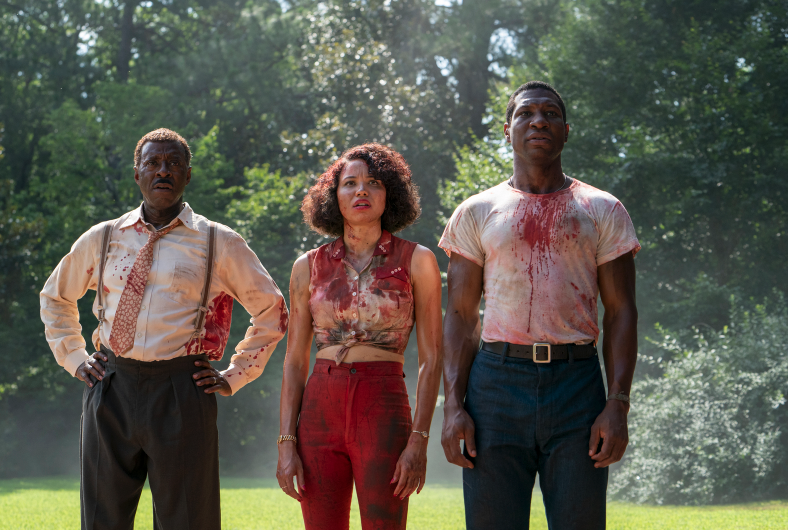An up-and-coming actor who landed a minor role in HBO's hit series Lovecraft Country is speaking out about the uncomfortable moment she was covered in makeup significantly darker than her actual skin tone to play the part.
Kelli Ffrench-Parker, a 23-year-old from Atlanta, told BuzzFeed News that she didn’t want to reveal her experience at first over fears that she would be blacklisted.
“I honestly sat on the story for a while just because I was kind of apprehensive about how it would be received — and as an aspiring actress who has really only done, like, extras and background work, you definitely don't want to run the risk of, like, alienating yourself to people in powerful places,” Ffrench-Parker said.
The student, who now resides in New York, initially relayed the story on TikTok in response to a prompt to share the wildest thing they had witnessed while working as an extra in film or television.
In her account, she detailed how she was cast as a young version of Ms. Osberta (Carol Sutton) for a wedding photograph that makes an appearance in the show's seventh episode.

Ffrench-Parker, who has a lighter complexion, shared the transformation she underwent, which included having to wear significantly darker makeup than her actual shade. Most people who have seen the transformation have been critical and accuse the show of allowing blackface and perpetuating colorism.
“I knew me being in this position as a light-skinned woman when it could have gone to a dark-skinned actress, it just felt utterly wrong and just uncomfortable,” she said.
In hindsight, the Howard University graduate said, if she had known that she would be required to darken her skin, she would have declined the role and criticized the casting directors for failing to do adequate work to find an actor who better fit the description.
“I think there's a responsibility in terms of casting of doing the job to not put someone in that position," she said. "I had no idea before I got on set that that was gonna happen to me — and if I knew beforehand, I wouldn’t have done it.”
The drama series, which features a predominantly Black cast, is based on the novel of the same name by Matt Ruff and is executive produced by Misha Green, J.J. Abrams, and Jordan Peele.
In a statement to BuzzFeed News, a spokesperson for HBO said the makeup darkening "should not have happened."
"We were very disappointed to learn of Ms. Amirah’s experience," the spokesperson said, referring to the name the actor uses on TikTok. "This should not have happened, and we are taking steps to ensure this doesn’t occur again in the future."
The show follows Atticus Freeman (Jonathan Majors) as he journeys with his childhood friend Letitia (Jurnee Smollett) and his uncle on a road trip from Chicago across Jim Crow America in the 1950s in search of his missing father.
Ffrench-Parker, who considers herself a “quiet person,” acknowledged how issues like colorism were in play when it came to her casting.
Colorism is essentially preferential treatment on the basis of skin tone, and its proximity to whiteness, with a negative impact on those with a darker complexion within the same community.
“I tried to be somebody that is aware of the privileges that I do hold in society, one of which being that I am a lighter complexion Black woman, so while I do face the barriers and whatnot, in terms of racism, when it comes to in comparison to dark-skinned women, there are still certain areas where I know that I benefit from. And this is a great example of me benefiting from colorism,” the actor said.
Ffrench-Parker highlighted the casting of Zoë Saldaña to play musician and activist Nina Simone as a clear example of colorism at work. For the 2016 biopic, Saldaña wore a prosthetic nose and skin-darkening makeup.

Saldaña delivered a tearful apology last year, admitting that the decision was a misstep and she “should have never played Nina.”
Ffrench-Parker said: “I never wanted to be one of those actresses. I've never wanted to be the person where I'm intentionally auditioning or taking roles where I know I'm not the best fit, character-wise.”
